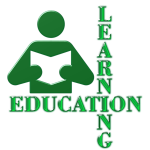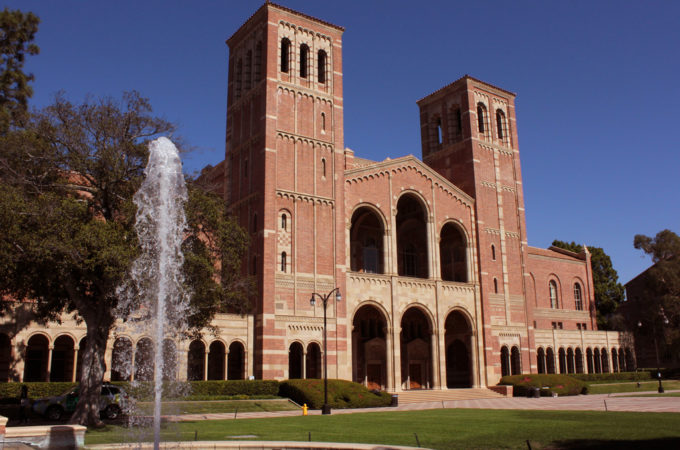School vs. education. Do you know the difference?
 Many young people who are thinking about college need to understand the difference between school vs. education.
Many young people who are thinking about college need to understand the difference between school vs. education.
Many parents need to consider whether their childrens’ schooling is getting in the way of their education.
Because your schooling can actually interfere with your education.
Years ago, at L’ Abri Fellowship in Switzerland I heard Francis Schaeffer say “Don’t let your children’s schooling get in the way of their education.”
Actually, the expression was not original with Schaeffer. Many have attributed it to the American novelist Mark Twain. But it shows up as early as 1894. That’s the year science writer and novelist Grant Allen published his book, Post-Prandial Philosophy:
One year in Italy with their eyes open would be worth more than three at Oxford; and six months in the fields with a platyscopic [having a wide and flat field of view] lens would teach them strange things about the world around them that all the long terms at Harrow and Winchester have failed to discover to them. But that would involve some trouble to the teacher.
What a misfortune it is that we should thus be compelled to let our boys’ schooling interfere with their education! [emphasis added]
To say that Schaeffer’s comment stunned me is not too strong an expression. I had completed many years of school (grammar and secondary school followed by university) and had then enrolled in graduate school (read seminary). But I burned out spiritually during a year of seminary. Schaeffer’s comment about school vs. education started a process that transformed my view of learning.
School vs. education may be an accurate way to phrase the issue
What was Schaeffer saying? He was distinguishing between school and education. I had been to school. In fact, I had more schooling than most people in the world and more than many of my peers in the United States. I had put in my time in class. But I had not been educated.
As I reflected on all this I came to a number of conclusions, all of which come under the heading of school vs. education.
First, although I had insatiable questions as a child, I stopped asking when I grew older. My schooling did not encourage an inquisitive mind, critical thinking, and creativity. Rather, I learned to memorize and regurgitate what the teacher taught me. My schooling was about facts and figures, rather than understanding and moral formation.
Second, I realized I didn’t know how to think. I had never had an original thought! I grew up on comic books (images with few words). Today many children grow up with video games and TV (even more images and fewer words).
 A third conclusion hit me while I was reading C.S. Lewis’ Narnia Chronicles, for the first time, at L’Abri. I had the distinct sense that I had not lived before that moment.
A third conclusion hit me while I was reading C.S. Lewis’ Narnia Chronicles, for the first time, at L’Abri. I had the distinct sense that I had not lived before that moment.
Fourth, I concluded that I had learned more in two months of informal study and work in the L’Abri community than in nine months of formal seminary education.
Education takes a lifetime
Sometimes school and education go together. But often it’s school vs. education.
- I had lots of schooling, but not much education. I came finally to understand the New Testament concept of repentance – metanoia – a fundamental change of mind. I repented, realizing that my mind needed to be born again. This led to a number of other convictions.
- I needed to be a life-long learner. I needed to learn from all my life experiences. I needed to take more opportunities to travel and meet people and learn from their lives and stories.
- I decided to always be reading several books. Now I always have a book with me to redeem the time while waiting for someone or something.
- I needed to become a life-long student of the Word of God, not just for my devotional life, but for all of life, including my work.
- I needed to take words and ideas seriously. Over the years I have developed a great love of words, their definition and history/etymology. This has brought me much pleasure.
The whole direction of my life changed as I considered the observation, “Don’t let your schooling get in the way of your education!”
What did Schaeffer mean by this statement?
Education is a life-long process. In fact, education doesn’t happen only in a classroom, a structured period of time, or formal instruction. Actually, education can take place anytime, anywhere, in the middle of a full life, in formal and informal ways. It takes place in the midst of creation, society, culture, and work. Education has to do with the cultural trinity: Truth, Beauty and Goodness.
Sometimes schooling can stand as a barrier to children learning, growing in wisdom and understanding, becoming educated in knowledge and virtue.
Recently I did a study of the words “schooling” and “education” using Webster’s 1828 Dictionary of American English and the Online Etymological Dictionary [OED]. The results were fascinating and confirmed the distinction Francis Schaeffer was making.
Schooling
In 1828, Noah Webster defined schooling as “instruction in school.” School is a place where instruction occurs.
Even more instructive is the etymology of the word “school.” The OED listing looks as follows:
The school is place where “leisure is enjoyed,” a place free from work. Literary studies take place after schooling. The idea of “‘students attending a school’ is attested from c. 1300; sense of ‘school building’ is first recorded 1590s.”
Education
While “school” denotes a building, “education” means the formation of a life. In 1828, Noah Webster defined education as follows:
Note that education is comprehensive. It deals with both the gaining of knowledge and the development of character – virtue. And the combination of virtue and knowledge leads to wisdom.
 The OED dates the word education to 1530 and defines its use as “childrearing.” This comes “directly from Latin educationem (nominative educatio), from past participle stem of educare.” From 1610 the word was used “of education in social codes and manners; meaning ‘systematic schooling and training for work.’”
The OED dates the word education to 1530 and defines its use as “childrearing.” This comes “directly from Latin educationem (nominative educatio), from past participle stem of educare.” From 1610 the word was used “of education in social codes and manners; meaning ‘systematic schooling and training for work.’”
The words schooling and education have very different meanings.
The former relates to a place – a building, a place of leisure separated from work itself and from the preparation of a person for work.
The latter is a process of instruction that prepares the mind with knowledge and understanding, the heart with virtue, and the will with wisdom. It prepares people for life and work.
School vs. education: the modern word has lost this distinction.
Don’t let your schooling stand in the way of your education.
– Darrow Miller








12 Comments
Lianggi Espinoza
September 9, 2013 - 8:35 amhello. Thanks for the reflection.
I think the ideas of the intellectual and ex-priest Ivan Illich can expand the reflection on the difference between school and education. Illich developed part of his work in Mexico, and is linked to the massification of home-scool in USA, so I understand.
http://www.arvindguptatoys.com/arvindgupta/DESCHOOLING.pdf
Blessing
admin
September 9, 2013 - 2:40 pmThanks for reading and responding.
Gary Brumbelow
Prakash Mani Dahal
November 17, 2013 - 7:28 pmI agree Mr Darrow in that education and schooling are different and I agree schools becoming stereotype and too formal have failed to provide true education to the learners
as in all other walks of life. Yet schooling can’t be detached from education because whatever done formally or informally to acquire or add information, idea, skill is schooling. Only it must be made soundly work and it (schooling) must be sharpened, active, widened, dedicated and dutiful so it can meet the need of the learners.
admin
November 18, 2013 - 1:07 pmPrakash, thanks for your thoughts. Ideally, schools would educate. But too often, in my country, schools exist more for teachers and administrators than for children. And I know, from years of global travel, most schools teach by rote. Children do not learn to think critically, reason or be creative. It is very sad.
Thanks again for your thoughts.
darrow
Peter Trebilco
August 10, 2014 - 4:15 amDear Darrow,
Thanks for an opportunity to air an opinion.
The ideas expressed in English by the words “teaching” and “learning” are universal ideas found in all cultures. The practices of teaching, however, are culturally relative, which is why I think we have so many books on how to teach and none on the idea that everyone, and every experience, is a teacher from which we may choose to learn and thus continue educating ourselves. Schooling (often conflated with education) is merely a small part of our lives yet it has often far-reaching consequences. The thing that attracts my research focus now is the conspicuous absence of consent to a national or other curriculum by those whose lives are greatly affected by the choices made by an oligarchy of bureaucrats often remotely from the communities in which compulsory ‘education’ (read schooling) is imposed by legislation. Then, those who are to be schooled in this random body of selected information are to be schooled compulsorily. They have no say in the matter of specific need or desire to learn something someone else has decided they must learn. On top of this, each child must prove to us that he or she has ‘learnt’ what we chose he or she should ‘learn’ before we will permit him or her to participate in our adult community. We also grade our children in order to help us make choice about their employability. The people of whom I speak are of course our children. I often hear the argument that it is OK for parents to make such choices on behalf of children who are, at law, incompetent to decide for themselves but such an argument invites consideration of matters such as female genital mutilation, pre-arranged marriages and child brides, and the circumcision of boys. These latter decisions in my view constitute an assault on a defenceless person, yet we impose a body of selected information on our children without consent or consideration of the real needs of individuals in their specific contexts. In other words we dream of a one-size fits all solution to a problem we have yet to define (the more obvious literacy and numeracy aside, the remaining choices are moral ones taken by people who are largely unfamiliar with individual need and capacity).
On learning, if that view is adopted, then education may be understood as the interpretation of learning, which may or may not lead to a change in an individual’s socio-cultural worldview. What this implies is that both learning and the education that derives from choices an individual makes with respect to the relative value of his or her learning to an existing and evolving worldview are unique and personal, to say
nothing of purely internal to the individual.
To say someone was educated at Harvard, implies education has finished. ‘Was educated’, is, after all, a complete idea. Yet we know more or less a priori that learning and education don’t normally end. It’s been fun. Thanks
admin
August 15, 2014 - 4:38 pmPeter, thanks for your comment on the blog “School Vs. Education: The Difference Matters. It has struck a chord with people as it has been one of the top two blogs each week since it was first published. I am sorry for the delayed response.
Of course, I appreciate your emphasis on life-long-learning, the education that takes place beyond formal schooling; and your comments that life itself, our experiences and people are our teachers. I knew a man who, years ago, who stated that now that his children were out of school, their real education would begin. Life is the most profound teacher! I found his insight to be very profound.
I think that many of the problems we have today with education/schooling question are the almost universal assumption that government is responsible for children’s education. Parent are left with little to no responsibility and those who do care about their children’s education, often have to fight against culture, government policy and government bureaucrats if they want help shape or take responsibility for their children’s education. We need to work to restore the concept that parents are responsible for their children’s education be it in a formal school setting, home schooling or in creating a rich environment for their children to grow and be nurtured.
Peter, because of your work and interest in education, let me mention a series of blogs on education that we wrote a few years ago that we turned into a paper title “The Education That Leads to Freedom. If you have not seen the paper, it can be found here: http://www.disciplenations.org/article/pdf-education-leads-freedom/. Hope you find it helpful.
If you do not know him, you may also want to be in contact with our friend Dr. Christian Overman of Worldview Matters – http://www.biblicalworldview.com/ . Chris is a dear friend who has a lifelong interest in education.
Thanks again for your input,
darrow
Peter Trebilco
August 16, 2014 - 5:38 amDear Darrow,
I acknowledge the key question of who has responsibility for the schooling of children. When compulsory schooling was first legislated in 1870 in England, it was an altruistic decision taken to prevent under-10 year-old child exploitation by workhouses and the poverty-stricken families who sent their children to the workhouses. However, in the literature of the day there is no reference to consent by child or parent either to sending children to school or to any sort of curriculum imposed by the remnant feudal caste of bureaucrats and legislators who took it upon themselves to decide everything on behalf of the so-called ‘lower classes’. The current school model is essentially a remnant of the class distinction of 19th century England, built on factory/workhouse lines of separate classes or departments, age-batching, time-constrained activity, and separate and often unrelated subjects. The first schools in colonial Australia (I’m Australian) after 1770 were church schools designed to remove convict children from their parents who were deemed (again by altruistic bureaucrats but with out parental consent) unable to control them. The number of male convicts far exceeded the number of female convicts and it seems nothing could keep them apart. There were numerous children. At heart, I have no argument with the idea of a literate and numerate population. However, the imposition on my family of the costs associated with compulsory schooling leaves me thinking I am paying for an outcome over which I have little if any control. In basic format, I am paying the state to school my children but have no say over the content or value of whatever the state chooses to teach. How we change the course of the Leviathan is a central question in any effort to effect change. If we take the view that schooling occurs on the basis of a social contract between the individual and the state set up to manage the environment in which the individual lives, then I take the position that a contract formed without the consent of both parties is an invalid contract. On that basis we may be overdue for serious reconsideration of the idea of parental responsibility for the schooling and growth of the family. I look forward to a gentle revolution in how we make new and better sense of our world. Peter
Fay DeMeyer
February 25, 2015 - 8:50 amDear Mr. Darrow,
First, I enjoy reading your articles. Not only are they biblical but there is tremendous logic in them. Which it makes sense the God of all thinking is logical, feeling, reasonable and always right. I would love to interview you on my Radio shows. I have two right now and am expanding. But, the kind of reasoned and informative work you do is exactly what I want to feature. If there is an interest, please contact me at 503-339-5225
admin
March 9, 2015 - 11:14 pmHello Fay
Thanks for your feedback. I would enjoy being on your show. I am currently out of the country, but will return in a few weeks and will try to reach you.
darrow
Didosky Eduku
October 12, 2016 - 4:50 amThanks for Clearing the air on education and schooling